Simple Stats for Evaluating Interventions to Reduce Crime
Andrew Wheeler, PhD
Carolina Crime Analysis Conference
2024-02-28
My Background
- PhD Criminal Justice
- Statistical Analysis
- Custom Software
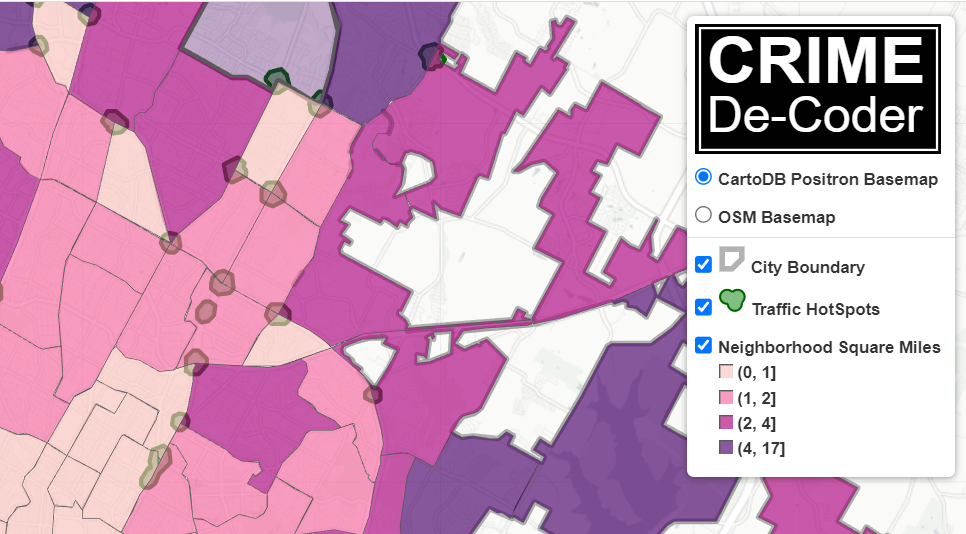
What is the point?
- Know if some intervention actually reduced crime
- Estimate how much it reduced crime
- and whether the results are due to chance
Agenda
Planning and Evaluation
- Why you need a control group
- Identifying treatment & control areas
- Length of treatment
- Displacement areas
Conducting Analysis
- You only need 4 to 8 numbers
- Inferences and confidence intervals
Why you need a control group
Pre-crime = 100
Post-crime = 80
Was the intervention successful?
Why you need a control group
Pre-crime = 100
Post-crime = 80
Was the intervention successful?
If it looks like this, probably not

Why you need a control group
Pre-crime = 100
Post-crime = 80
Was the intervention successful?
This is better evidence
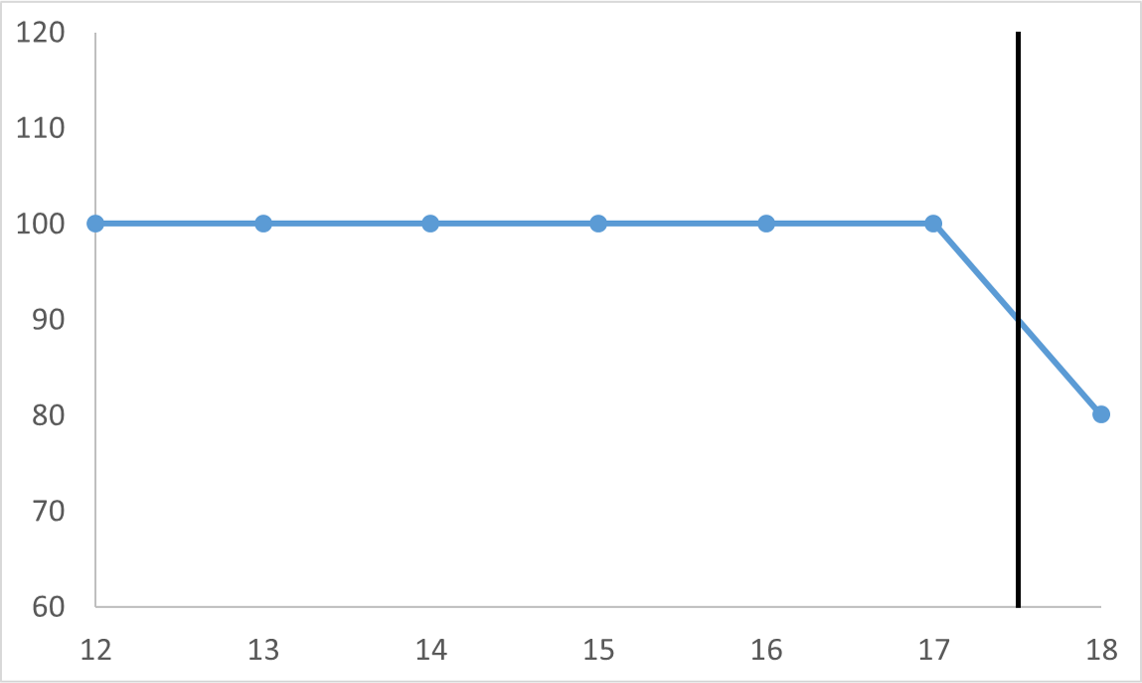
A control group lets you infer trends
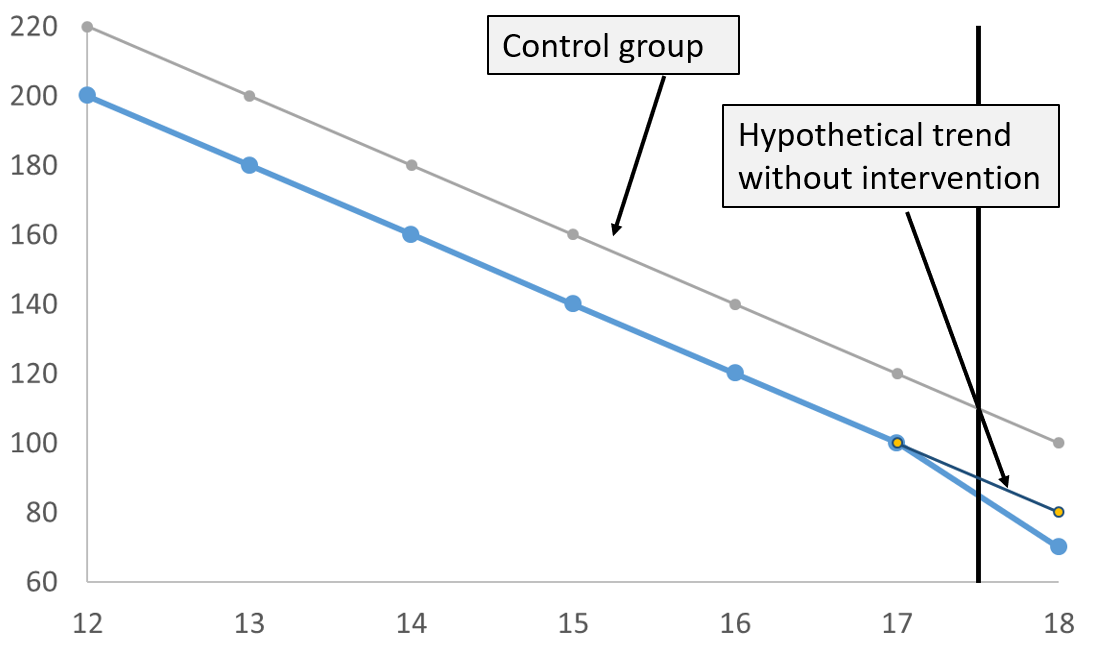
Example Use Case
- Treated: Pre=100, Post=80, Difference = -20
- Control: Pre=100, Post=95, Difference = -5
- Estimate = -20 - (-5) = -15 (19)
- 95% Confidence Interval: -53 to 23
- Uses Poisson distribution to make metrics easier
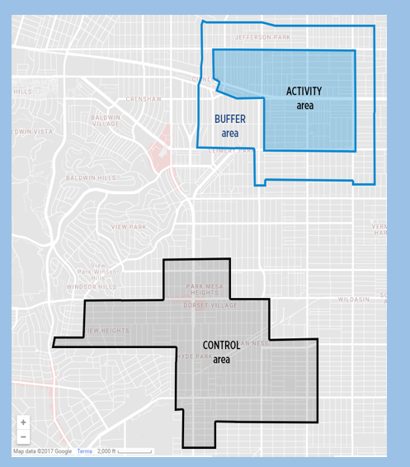
- How do you choose a control group?
Should have similar trend to treated
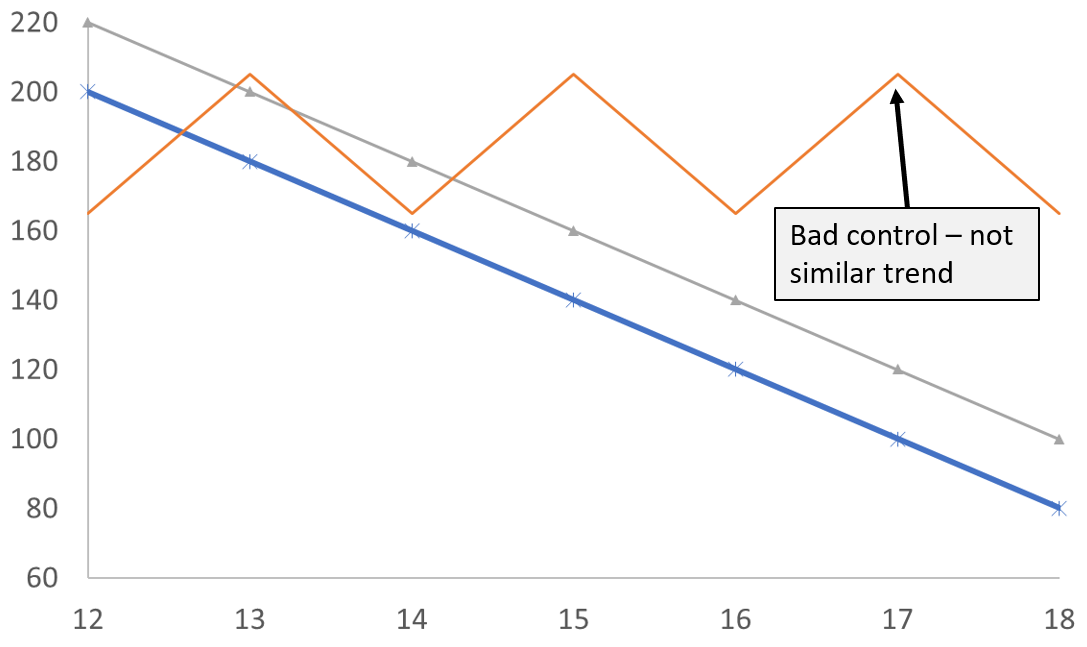
Advice for Choosing Control Area
- Aim for similar counts
- It is ok if control is bigger area (can use rest-of-city)
- Can use a neighboring jurisdiction
- Choose only based on pre-trends (no cherry picking)
Length of Treatment

- If low crime to begin with, impossible to know if worked
- If too low of power, combine areas or evaluate longer
- Baseline 20 crimes, need to reduce 15
- Baseline 100 crimes, need to reduce 30
Extensions/Resources
Simple Stats for Evaluating Interventions to Reduce Crime
Andrew Wheeler, PhD

